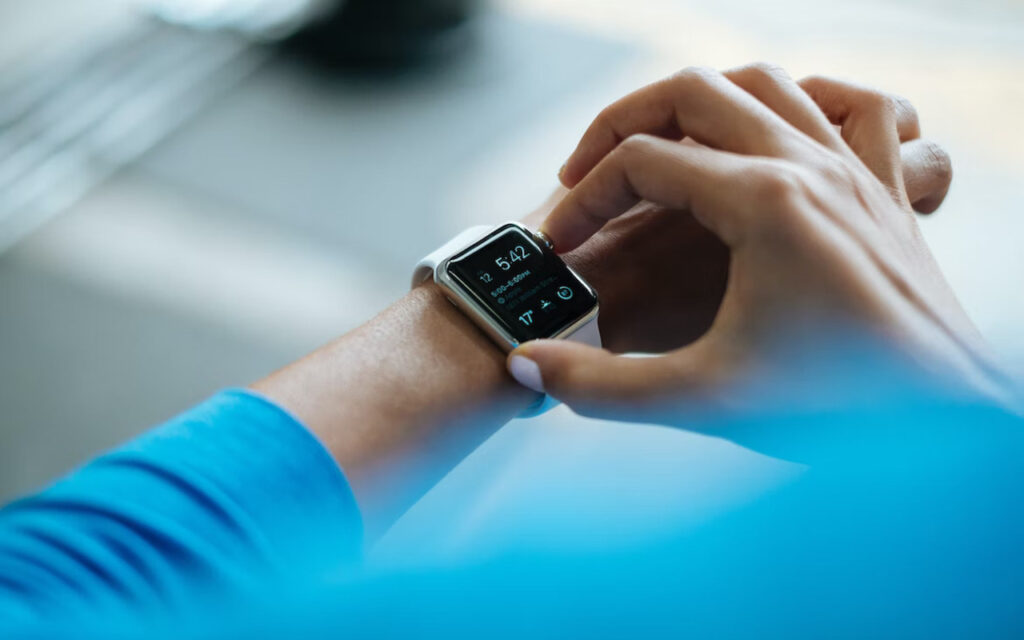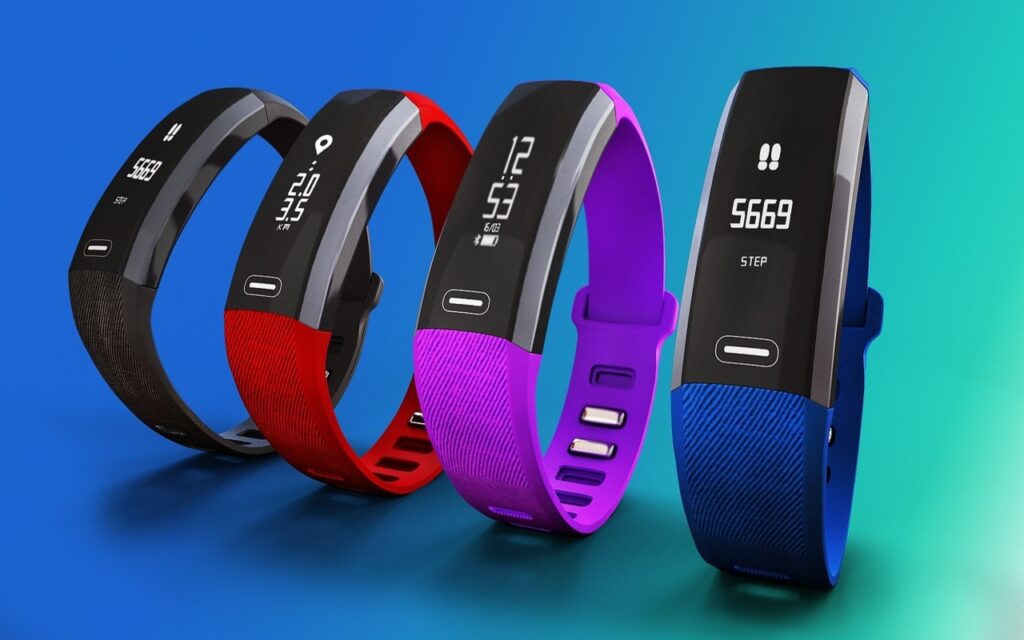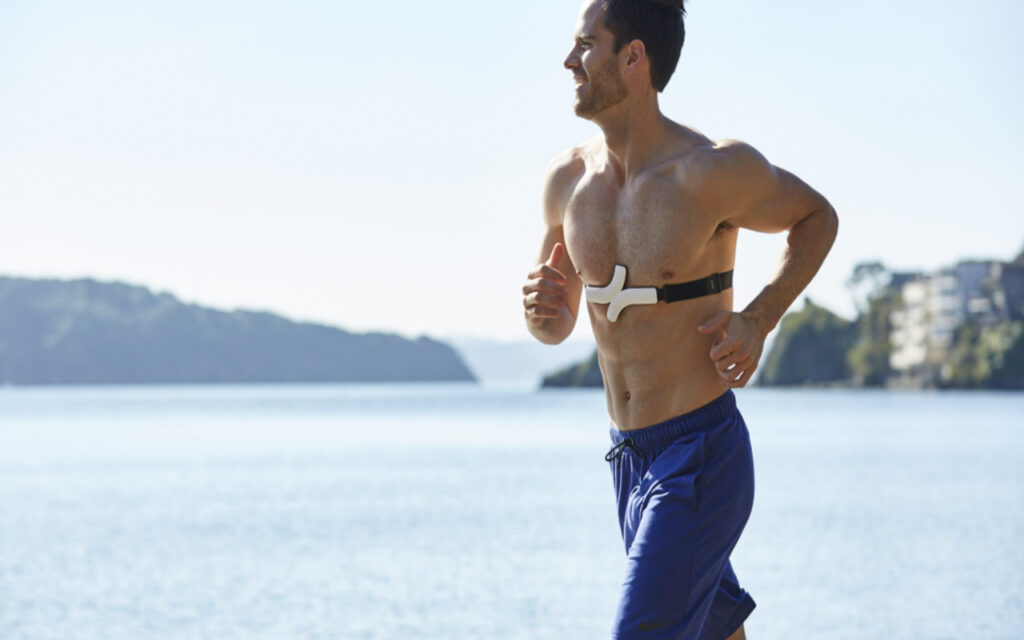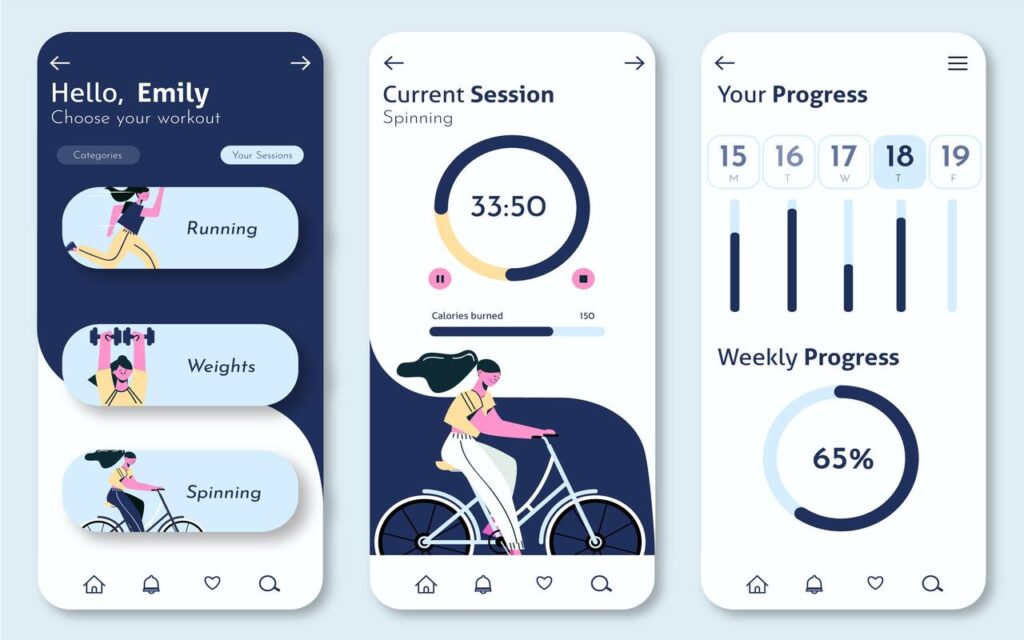Have you ever wondered how technology can help us take better care of our health? Well, the answer is Wearable Healthcare Devices.
These innovative gadgets are taking the healthcare industry by storm and revolutionizing the way we monitor and manage our health. From tracking our daily activities and vital signs to providing real-time insights into our health and fitness levels, wearable healthcare devices are changing the game. You know what! These devices have been credited with saving lives, and the Apple Watch is no exception.
According to a report from India today, a 36-year-old man from Flitwick in Bedfordshire, UK, has credited his Apple Watch for alerting him to an undiagnosed heart condition. The man, named Adam Croft, woke up to find that his watch had been alerting him throughout the night that his heart was in Atrial fibrillation, or AFib, which means his heartbeat was not regular. This feature on the Apple Watch has been known to save lives by detecting irregular heartbeats and alerting users to seek medical attention. Adam Croft’s story is just one example of how wearable healthcare devices are making a significant impact on people’s lives by providing real-time health monitoring and alerts for potential health concerns.

Ever wonder what your body is attempting to tell you?
With the rise of healthcare devices, it’s now easier than ever to monitor your personal health and wellness goals. These portable, wireless devices can be worn on your body to track and monitor various health metrics, such as heart rate, physical activity, and sleep patterns. But it’s not just about tracking your fitness goals. These devices are changing the game when it comes to personal health monitoring.
These tiny devices or gadgets have the ability to monitor our health in real time and alert us to potential health issues, which can be lifesaving in some cases. These can track our daily activities and vital signs, provide valuable insights into our health and fitness levels, empowering us to take charge of our well-being.
As a tech enthusiast, I am convinced that wearable healthcare devices can make significant improvements in people's lives, making it easier to live healthier and lead a happier life.
Come, we’ll take a closer look at the world of wearable healthcare devices. We’ll explore what they are, how they work, their benefits, and the different types available on the market. By the end of this article, you’ll have a better understanding of how these devices can help us lead a healthier and more active lifestyle. So, let’s get started!
What is a Personal health monitoring device ?
Personal health monitoring devices can track everything from steps taken to calories burned, providing a comprehensive overview of your overall health and wellness. Here are some examples of personal health monitoring devices:

Fitbit: A popular fitness tracker that can track physical activity, heart rate, and sleep patterns.
Apple Watch: A smartwatch that can track physical activity, heart rate, sleep patterns, and more.
Oura Ring: A ring that can track sleep patterns, heart rate variability, and body temperature.
Withings Body+ Scale: A smart scale that can track weight, body composition, and more.
What is an IOT healthcare device ?
IOT healthcare devices allow for real-time monitoring of a patient’s health, giving healthcare providers valuable insights into a patient’s condition. IOT healthcare devices available in the market today. Here are a few examples:

Remote Patient Monitoring Systems: These systems use sensors to monitor patient’s vital signs, such as heart rate, blood pressure, and oxygen levels, from a remote location. The data is transmitted to healthcare providers in real-time, allowing for more efficient and effective care.
Wearable ECG Monitors: These are devices that can be worn on the body to monitor heart rate and detect irregular heartbeats. They are often used by patients with heart conditions or those who have recently undergone cardiac procedures.
Why Wearable Healthcare Devices are Important?
Wearable healthcare devices offer several benefits over traditional healthcare devices. First, they are more convenient and less invasive than traditional devices. Second, they offer real-time monitoring, which can help individuals track their progress and make adjustments to their health goals. Third, they can be used to detect early warning signs of health issues, which can lead to early intervention and better health outcomes.
How Wearable Healthcare Devices Work?
Wearable healthcare devices use sensors to collect data about the user’s body. The sensors can measure a range of data points, including heart rate, blood pressure, temperature, and physical activity. The data is then sent to a smartphone or computer, where it can be analyzed and used to track progress over time. Some wearable healthcare devices can also be connected to other devices, such as smartwatches or fitness trackers, to provide a more comprehensive picture of the user’s health.
So whether you’re looking to improve your fitness routine or monitor a medical condition, wearable healthcare devices offer a convenient and accessible way to track your personal health metrics. It’s time to take control of your health and see what your body is trying to tell you.

As the demand for consumer control over personal health grows, so too does the innovation of wearable healthcare devices in medical technology. Say goodbye to basic heart rate monitors, and hello to a range of innovative features that will make you feel like you have a personal trainer in your wrist. The modern wearable technologies offer impressive options including sleep tracking, stress management, and workout tracking which is making them the best in business.
Top 5 wearable health and fitness tracking in 2023?
Ready to elevate your health and fitness game in 2023 ? Let us take a look into the exciting world of wearable healthcare devices to help you find the best fitness tracker possible in the market.
Apple Watch Series 8 (The ultimate fitness tracker that tops my list)
Garmin Fenix 7 (The perfect fitness tracker for data-driven individuals)
Xiaomi Mi Smart Band 7 (A budget-friendly fitness tracker that doesn't compromise on quality)
Garmin Forerunner 955 (The ideal fitness tracker for runners looking to step up their game)
Fitbit Sense 2 (The go-to fitness tracker for managing stress and achieving balance in your life)
Smartwatches are the most popular type of wearable device. Fitness trackers are the second most popular category.
When it comes to choosing the perfect wearable healthcare device for us, We all want one that’s reliable, durable, and provides great customer support. Luckily, there are plenty of leading manufacturers to choose from, including Fitbit, Apple, Samsung, and more. Fitbits, smartwatches, and wearable monitors are just a few examples of how the medical industry is responding to this demand, providing cutting-edge options to help us stay on top of our health goals.
If you’re looking for a smartwatch that’s perfect for both fitness and health tracking, the “Fitbit Versa 2” is a great option. For those who love the outdoors, the “Amazfit T-Rex” smartwatch is built to withstand any adventure. And if you’re looking for a more classic look, the “Fossil Gen 5 Carlyle Stainless Steel Touchscreen” will surely impress.
Now, you might be questioning about how long these smartwatches will last. While the battery life depends on the device, most smartwatches have rechargeable batteries. As for software support, you can expect around 3-4 years. But with proper care, a good smartwatch can last up to a decade without any major faults.
From fitness tracking to medical monitoring, wearable healthcare devices offer a convenient and accessible way to stay on top of your health. Whether you’re a fitness/tech enthusiast or simply looking to improve your overall health, these fitness trackers are a game-changer.
Now, you might be wondering about how much does a smartwatch cost in India. If you’re interested in purchasing a smartwatch in India, it’s important to know that the cost can vary greatly depending on the brand, model, and features you’re looking for. There are many different smartwatches available in India from popular brands like Apple, Samsung, Xiaomi, Fitbit, and more. You can find basic models starting from around INR 2,000, while high-end models can cost INR 50,000 or more.
On average, a good quality smartwatch with basic features in India can range from INR 5,000 to INR 15,000. However, it’s important to do your research and compare prices and features before making a purchase. This will help you find the best value for your money and ensure that you’re getting a smartwatch that meets your needs and expectations.
So, what are you waiting for ? Choose your perfect one and start tracking your health goals. Get ready to take control of your health like never before.
You can also read my latest post on : Wireless technology
Frequently Asked Questions
What are wearable devices in healthcare?
Fitness trackers, Smartwatches, Smart Inhalers, Wearable ECG monitors, worn on the body and they use sensors to collect data on the user’s health status. As technology continues to advance, we can expect to see even more innovative wearable healthcare devices in the future.
What sensors are in wearables?
Common sensors found in wearables include accelerometer, heart rate monitor, ECG, blood pressure monitor, pulse oximeter, skin temperature sensor, EDA sensor, and ambient light sensor. They work together to collect data on the user’s health and fitness.
What is the difference between smart watch and fitness tracker?
Smartwatches offer multi-functionality with features like text messaging and phone calls, while fitness trackers are primarily focused on monitoring physical activity and health.
Pingback: History of wireless technology and anticipating the future
Pingback: internet of things
Pingback: Apple Watch Series 8 review